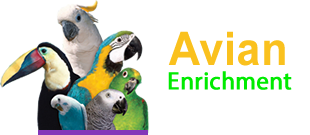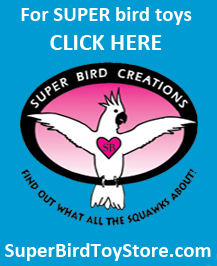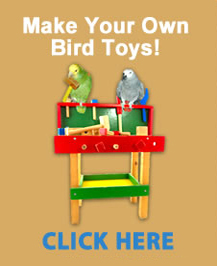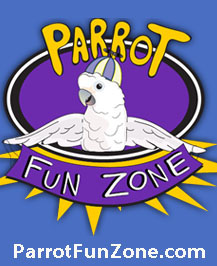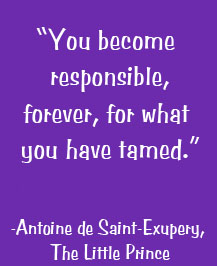- Written by: Deb White
- Category: Uncategorised
Sorry, we could not find the page you were looking for...
Write comment (0 Comments)- Written by: Deb White
- Category: Uncategorised
October 28, 2019
________________________________________
INTRODUCTION
AvianEnrichment.com may use cookies when you visit our website to help us customize and improve the user experience.
We reserve the right to make changes to this Cookie Policy at any time and for any reason. Any changes or modifications will be effective immediately upon posting the updated Cookie Policy on our site, and you waive the right to receive specific notice of each such change or modification.
You are encouraged to periodically review this Cookie Policy to stay informed of updates. You will be deemed to have been made aware of, subject to, and deemed to have accepted the changes in any revised Cookie Policy by your continued use of our site after the date such revised Cookie Policy is posted.
WHAT ARE COOKIES?
“Cookies” are unique identifiers that we store on your device to enable our system to recognize your device. Your browser then provides that unique identifier to use each time you submit a query to the site. We use cookies on the site to keep track of pages that are viewed, record registration information, record your user preferences and keep you logged into the site. Cookies help us understand how the site is being used and improve your user experience.
TYPES OF COOKIES
The following types of cookies may or may not be used when you visit the site:
Analytics Cookies
Analytics cookies monitor how users reach the site, and how they interact with and move around once on the site. These cookies let us know what features on the site are working the best and what features on the site can be improved.
Our Cookies
Our cookies are “first-party cookies” and can be either permanent or temporary. These are necessary cookies, without which the site won't work properly or be able to provide certain features and functionalities. Some of these may be manually disabled in your browser but may affect the functionality of the site.
Personalization Cookies
Personalization cookies are used to recognize repeat visitors to the site. We use these cookies to record your browsing history, the pages you have visited, and your settings and preferences each time you visit the Site.
Security Cookies
Security cookies help identify and prevent security risks. We use these cookies to authenticate users and protect user data from unauthorized parties.
Site Management Cookies
Site management cookies are used to maintain your identity or session on the site so that you are not logged off unexpectedly, and any information you enter is retained from page to page. These cookies cannot be turned off individually, but you can disable all cookies in your browser.
CONTROL OF COOKIES
Most browsers are set to accept cookies by default. However, you can remove or reject cookies in your browser’s settings. Please be aware that such action could affect the availability and functionality of the site.
For more information on how to control cookies, check your browser or device’s settings for how you can control or reject cookies.
Write comment (0 Comments)
- Written by: Deb White
- Category: Uncategorised
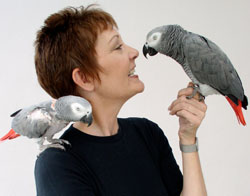
Patricia Sund is a Columnist for "Bird Talk" Magazine and has a popular Blog called "Parrot Nation," where she writes about life, birds, and her adventures in the world of Aviculture, including volunteering as a Keeper at the Cincinnati Zoo. She has written for Phoenix Landing's "Phoenix Beakin'", "The Alamo Exhibition Bird Club," the AFA "Watch Bird,"as well as for the Rocky Mountain Society of Aviculture. She has written internally for American Airlines as well as having written, directed and produced a play called: "Loves People-Loves to Travel."
Patricia has completed Dr. Susan Friedman's online course: "LLP: Living & Learning with Parrots," and both Beginning and Advanced Levels of the "Natural Encounters" Companion Parrot Training Seminars.
Patricia Lives in Hollywood, Florida with her two Hoodlum African Grey Parrots, Parker and Pepper and her parrot-poop dodging, rescued ShihTzu: Mattie.
When asked why she has parrots in her life, she always responds the same way: "I've been a Flight Attendant for almost 23 years; I guess I'm used to serving food, repeating myself, cleaning up crap and getting hollered at."
Write comment (0 Comments)- Written by: Deb White
- Category: Uncategorised
en·rich·ment
The act of making fuller or more meaningful or rewarding.
A gift that significantly improves or enhances the quality of life.
Enrichment, in terms of the lives of our parrots, refers to simple actions we can take to vastly improve their lives in captivity and is an integral part of responsible parrot care. It has everything to do with how we keep our parrots happy, healthy and active as well as intellectually and instinctually challenged. To do this we must first understand their physical, mental, social and psychological needs and then, based on this understanding, devise activities and provide our parrots with enrichment devices that help them meet all of these requirements. Enrichment offers the benefits of decreased stress, improved mental and physical health and reduction of behavioral problems.
Effective enrichment activities and devices make our parrots lives more interesting by stimulating natural and instinctual behaviors, encouraging physical activity, presenting them with mental challenges and allowing them to make decisions/choices as well as to develop a sense of control over their environment.
Parrots living in the wild are focused on four primary things:
- Foraging (finding food)
- Grooming
- Social interaction with flock
- Defining and defending territory
In captivity, all of the challenges they would be faced with in the wild have been conveniently solved for them. Unfortunately, in simplifying their lives we’ve also deprived them of the opportunities to do many things for themselves that would make their existence more fulfilling. It's critical for our bird’s well being that we attempt to provide them with opportunities to face many of the challenges that they would face in the wild.
According to Dr. Joy Mench, director of the Center for Animal Welfare at UC Davis, "for animals left without anywhere to go and nothing to do, it is not surprising that these animals begin to demonstrate what are known as abnormal and "stereotypic" behaviors, actions similar to those seen in people who suffer from obsessive compulsive disorder and other psychiatric disorders".
The good news is that studies conducted on Orange Wing Amazons at UC Davis (Cheryl Meehan) have demonstrated that providing enrichment devices to satisfy your birds instinctual needs to forage and chew as well as devices to stimulate movement and exercise can reduce stress and help avoid or eliminate undesirable and abnormal behaviors such as feather picking.
Fortunately, many of the solutions are fairly easy to implement and there are a growing number of products available to assist parrot owners accomplish many of these objectives. Some specific examples of enrichment activities we can undertake are:
- To satisfy their foraging instincts, we can provide our birds with a variety of foraging devices that need to be manipulated and that will require them to "work" for their food.
- Staging these foraging devices at multiple locations and levels throughout the cage will encourage movement and exercise
- Varying the placement and types of foraging devices will challenge them mentally.
- To provide an outlet for their natural instinct to chew, we can give our parrots a wide selection of safe, novel destructible items such as toys, cardboard boxes, and large tree branches to explore and destroy.
- We can give our parrots an interesting and varied selection of fresh fruits, vegetables and treats that will allow them the opportunity to make choices and simultaneously provide them with a nutritious diet.
- We can challenge their intellect by providing puzzle and interactive toys.
- Because our parrots are highly socialized to humans and greatly enjoy our companionship, we can spend one on one "quality time" with them for longer periods each and every day, doing with them whatever they're in the mood for at the moment and enjoy the most.
- Our parrot’s cages can contain places for them to retreat for some shelter and privacy.
- A variety of natural perches of various sizes can be provided to promote movement as well as good foot health.
Additional suggestions on enrichment activities are provided throughout our series of articles.
Write comment (0 Comments)